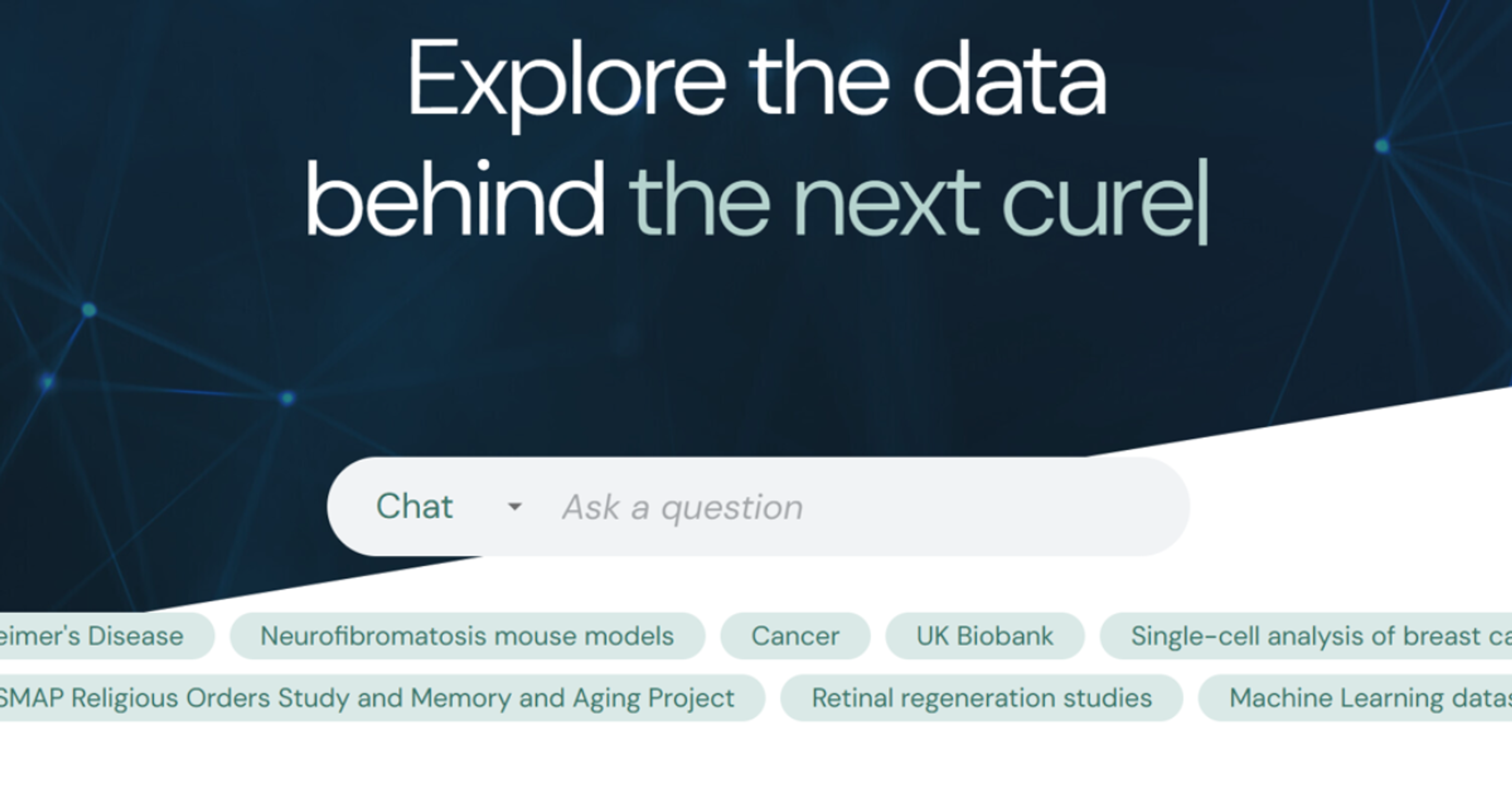News • 12/10/2024
Sage Bionetworks’ data platform, Synapse, maximizes biomedical discovery with the help of artificial intelligence

SEATTLE, WA – Despite the rapid advances of large language models (LLMs) in the extraction, translation, and summarizing of information, these technologies have still not been adequately integrated into open source biomedical datasets.
Synapse, the cloud-based data platform operated by Sage Bionetworks, has now combined AI-based chat with its search functionality to enable researchers to better interrogate datasets across disciplines.
SynapseChat can provide users with more precise search of datasets of interest, helpful summaries of complex datasets, as well as assistance in identifying new connections across different findings.
“Synapse’s integration of conversational interfaces represents a pivotal step in making biomedical data more discoverable and usable,” says Luca Foschini, PhD, President & CEO of Sage Bionetworks. “These tools are not just about advanced AI; they are about helping researchers clarify and refine their searches, uncover connections across datasets, and ultimately enable more effective data reuse. Importantly, all of this is achieved while maintaining the highest standards of patient privacy and regulatory compliance.”
Synapse is one of only nine NIH-listed generalist repositories for storing and sharing scientific data. It is a custodian of 3.3 petabytes (PB; equal to 1,000 TB) of data and has 6,200 active users each month.
The AI-enabled data exploration is one of many changes made to the Synapse infrastructure in recent months to aid researchers who wish to contribute and reuse datasets.
The platform now provides visitors with real-time metrics on monthly user downloads, popular “trending” projects, and newly featured datasets. The updates are focused on giving more visibility to those who share their findings on Synapse, while providing new research communities with simple entry points for accessing potential datasets of interest.
Users can also find existing scientific communities through easy access to the Synapse portals. These are rich resource hubs that help researchers to make impactful discoveries across multiple fields, such as neurodegeneration, cancer, rare disease, and mental health. Each portal provides scientists with open multi-omic datasets, publications, and software tools that can speed up the rate of innovation. As AI chat is refined within Synapse, the enhanced search functionality will also be extended to each of the supported portals.
“The visibility that Synapse has given to our -omics datasets will help provide fresh opportunities for collaboration with other great minds within and outside of the longevity space,” says Nicholas Schork, PhD, Director of Quantitative Medicine and Systems Biology Division at the Translational Genomics Institute.
For Synapse contributors, Sage recently rolled out a tiered offering system to provide additional benefits to those wishing to store and manage large datasets.
The new Self-Managed Plan, for example, provides help with project set-up, governance consulting, and tools for managing data access requests. It is also the recommended resource for compliance with the NIH’s Data Management and Sharing Policy.
The evolution of Synapse is part of Sage’s goal to create a sustainable open science ecosystem, whereby growing volumes of high-quality research data can be made available for exploration and responsible reuse by as many people as possible, coming from as many diverse backgrounds as possible.
Longer term, Sage aims to continue improving Synapse to make it easier for its communities of data contributors and (re)users to find and work with each other, providing a faster route from knowledge aggregation to patient impact.
For help with data sharing and management needs, learn more here.
Latest News
No articles